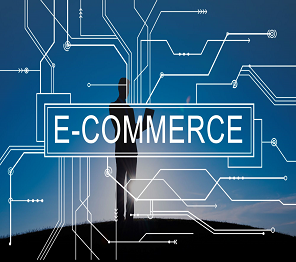The e-commerce landscape is constantly evolving, and businesses must stay ahead of the curve to remain competitive. The key to success in e-commerce is not just having an online presence but also understanding and adapting to changing consumer behavior. In this blog post, we'll explore some of the latest e-commerce trends that are reshaping the industry and discuss how businesses can leverage these trends to meet the evolving needs of consumers.
1. Mobile Shopping Dominance
One of the most significant shifts in consumer behavior is the preference for mobile shopping. With the widespread use of smartphones, consumers now expect a seamless and convenient mobile shopping experience. To adapt, businesses must ensure that their websites are mobile-friendly, with responsive designs, fast load times, and easy navigation. Mobile apps also play a crucial role in capturing mobile shoppers' attention and loyalty.
2. Personalization and Customer Experience
Consumers today expect personalized shopping experiences. E-commerce businesses are using AI and machine learning algorithms to analyse customer data and provide tailored product recommendations, content, and marketing messages. Creating a personalized journey not only increases sales but also fosters customer loyalty.
3. Omnichannel Retailing
The lines between online and offline shopping are blurring. Consumers expect a seamless experience whether they're shopping in-store, on a website, or through a mobile app. Businesses are adopting omnichannel strategies to provide consistent messaging, inventory visibility, and customer support across all channels. This trend ensures that consumers can choose how and when they interact with a brand.
4. Sustainable and Ethical Shopping
Consumers are increasingly conscious of the environmental and ethical impact of their purchases. E-commerce businesses are responding by offering sustainable and eco-friendly products, transparent supply chains, and ethical sourcing practices. Highlighting these aspects can attract socially responsible consumers and build brand trust.
5. Voice Commerce
Voice-activated devices like Amazon's Alexa and Google Assistant are changing the way consumers shop. Voice commerce is gaining popularity, and e-commerce businesses are optimizing their platforms for voice search. This trend emphasizes the importance of using natural language and conversational keywords in product listings and content.
6. Augmented Reality (AR) and Virtual Reality (VR)
AR and VR technologies are transforming the online shopping experience. Businesses are using AR to enable customers to try on clothes virtually or visualize how furniture would look in their homes. VR is being used for virtual showrooms and immersive product experiences. These technologies help bridge the gap between the physical and digital shopping worlds.
7. Social Commerce
Social media platforms are becoming shopping destinations in their own right. E-commerce businesses are leveraging social commerce features to sell products directly on platforms like Instagram, Facebook, and Pinterest. Building a strong social media presence and incorporating shoppable posts can boost sales and reach new audiences.
8. Same-Day and Fast Delivery
Consumer expectations for speedy delivery have skyrocketed. Businesses are investing in logistics and last-mile delivery solutions to offer same-day or fast shipping options. The convenience of rapid delivery can be a significant competitive advantage.
Conclusion
Adapting to changing consumer behaviour is essential for e-commerce businesses looking to thrive in today's competitive market. Staying attuned to trends such as mobile shopping, personalization, omnichannel retailing, sustainability, voice commerce, AR/VR, social commerce, and fast delivery can help businesses not only meet but exceed customer expectations. E-commerce is a dynamic and ever-evolving field, and those who embrace these trends are well-positioned to succeed in the shifting landscape of online retail.








